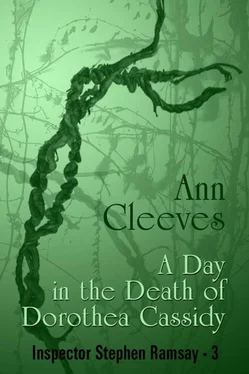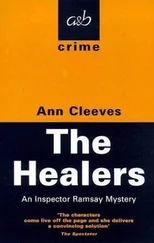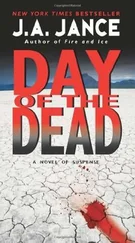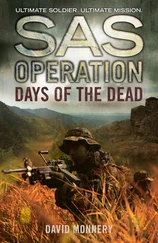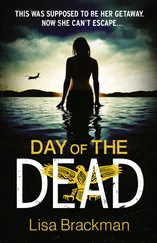Ann Cleeves - A Day in the Death of Dorothea Cassidy
Здесь есть возможность читать онлайн «Ann Cleeves - A Day in the Death of Dorothea Cassidy» весь текст электронной книги совершенно бесплатно (целиком полную версию без сокращений). В некоторых случаях можно слушать аудио, скачать через торрент в формате fb2 и присутствует краткое содержание. Жанр: Детектив, на английском языке. Описание произведения, (предисловие) а так же отзывы посетителей доступны на портале библиотеки ЛибКат.
- Название:A Day in the Death of Dorothea Cassidy
- Автор:
- Жанр:
- Год:неизвестен
- ISBN:нет данных
- Рейтинг книги:5 / 5. Голосов: 1
-
Избранное:Добавить в избранное
- Отзывы:
-
Ваша оценка:
- 100
- 1
- 2
- 3
- 4
- 5
A Day in the Death of Dorothea Cassidy: краткое содержание, описание и аннотация
Предлагаем к чтению аннотацию, описание, краткое содержание или предисловие (зависит от того, что написал сам автор книги «A Day in the Death of Dorothea Cassidy»). Если вы не нашли необходимую информацию о книге — напишите в комментариях, мы постараемся отыскать её.
A Day in the Death of Dorothea Cassidy — читать онлайн бесплатно полную книгу (весь текст) целиком
Ниже представлен текст книги, разбитый по страницам. Система сохранения места последней прочитанной страницы, позволяет с удобством читать онлайн бесплатно книгу «A Day in the Death of Dorothea Cassidy», без необходимости каждый раз заново искать на чём Вы остановились. Поставьте закладку, и сможете в любой момент перейти на страницу, на которой закончили чтение.
Интервал:
Закладка:
‘Were you visiting someone?’ Hunter demanded. ‘Was it Stringer? Something to do with the church?’
Tanner smiled and showed uneven nicotine-stained teeth. Keep it light, he thought. Keep it confident. Make it seem that there’s nothing to hide. Some of it they’ll find out anyway.
‘No, Sergeant,’ Tanner said. ‘Hardly that. I was there to visit my bookmaker.’
‘Do you expect me to believe that?’ Hunter said. ‘Are you trying to be funny?’
‘Not at all, Sergeant. I have a little flutter occasionally. Nothing substantial, of course. It’s a little harmless fun since I retired.’
‘There were witnesses?’ Hunter said.
‘Of course, Sergeant. Of course.’
And they had not got much further than that when Ramsay arrived from the vicarage. He had been back to the station to pick up a car and Hunter watched it draw up with anger and disappointment.
That was typical, he thought. Ramsay had arrived to steal the glory, just as Tanner was about to confess. But Ramsay, it seemed, was unconvinced about Tanner’s guilt. Hunter met him in the hall and tried to persuade him to take the retired grocer to the police station for questioning.
‘Put him in the cells for an hour,’ he said. ‘That’ll persuade him to talk.’
‘How does he seem?’ Ramsay asked.
‘Cocky. Too bloody cocky. Seems to find it funny.’
‘Perhaps he’s hysterical,’ Ramsay said. There was after all something ridiculous about a body in a bath. It was like a second-rate horror movie.
‘But the evidence!’ Hunter said. ‘The car and the boy’s body. And now you tell me there was motive too. The vicar’s wife had found out about his gambling and Tanner couldn’t stand the lad. It’s too much of a coincidence.’
‘Perhaps the murderer has a perverse sense of humour,’ Ramsay said. ‘Or a grudge against the old man. And we don’t know that Dorothea had found out about the gambling. It’s only a possibility.’
He was distant, as if his attention was elsewhere and he was going through the motions of considering Hunter’s opinion. Of all the inspector’s moods Hunter found this the most irritating.
‘Is there anything else I should know?’ the sergeant demanded. ‘Something relevant which might be worth a mention?’
Ramsay blinked as if shocked by the crude sarcasm but he answered calmly.
‘Dorothea Cassidy went back to the vicarage late yesterday afternoon. She met Patrick. The witness says the atmosphere was strained but she’s deaf so she’s probably rather unreliable. And I know who Dorothea went to see in the hospital yesterday.’
Hunter remained defiantly silent. He would not give Ramsay the satisfaction of asking for the information.
‘It was the staff nurse you spoke to,’ Ramsay said. ‘Her name’s Buchan. Imogen Buchan. She’s Patrick Cassidy’s girlfriend.’
Hunter swore under his breath.
‘There is something else,’ Ramsay said. There bloody would be, Hunter thought. ‘Joss Corkhill saw Dorothea Cassidy at the fair last night. Or he says he did. He might be a malicious witness playing games but I think I believe him. She was with a young woman whose description fits that of Imogen Buchan. He should be at the fair all night. We’ll send someone round with a photo to make sure.’
Still Hunter insisted that they should take Walter Tanner to the police station but Ramsay pulled rank and refused. The double murder had attracted the attention of the national press. They were jumpy and took delight in coming too quickly to conclusions. The phrase ‘helping the police with their inquiries’ would be seen by them as a euphemism and Annie Ramsay’s evidence made it impossible that Walter had killed Clive. Even if the boy were waiting for Tanner inside the house he would hardly have had time to commit the murder between arriving home and phoning the police. There was Dorothea, of course; still a chance that Tanner had killed her. But in that case who had murdered Clive? And what could be the motive? Ramsay felt that Tanner was useful because he had been close to Dorothea and understood the politics of the church. But he certainly wasn’t a suspect in his own right.
When Ramsay returned to the room Tanner was standing up, smoking a cigarette. He looked at Ramsay hopefully, seeing him as an ally, someone to rescue him from the bullying Hunter. Ramsay took a seat, waited until Tanner had stubbed out the cigarette, then spoke quietly.
‘When did Mrs Cassidy find out about your gambling?’ he asked.
Walter stared at him, his mouth slightly open. He clearly thought the man must be some sort of magician. He was too shocked to deny it.
‘Well?’ Ramsay persisted gently. ‘It was a recent discovery, wasn’t it?’
This was a guess but he imagined that Dorothea would never allow a situation she considered unsatisfactory to go on indefinitely. She would use all her energy to do something about it.
Walter Tanner nodded.
‘How did she find out?’
‘She’d been visiting a family on the Ridgeway,’ Walter said unhappily. ‘She saw me going into the bookies.’ The exhilaration which had sustained him through the interview with Hunter had left him.
‘What did she do?’ Ramsay asked.
Tanner paused, trying to find the words, stammering over them and when he spoke Ramsay was surprised by the power of them.
‘She tormented me,’ he said. ‘She was so certain… so morally superior… so horribly kind.’ And so beautiful, he thought. A vicar’s wife had no right to be so beautiful.
‘What did she expect you to do?’
‘To stop, of course. She seemed to think that it would be easy. “I really don’t see the problem,” she said. “ You don’t need that sort of thing. Not you, Walter. Not with your faith.”’
‘But it wasn’t that easy?’
‘It was impossible,’ he said. ‘ I knew she was right and I tried to give it up but it was like a terrible addiction.’ He paused again and ran his tongue over his lips. ‘ Then she thought I should make the whole thing public. She said I needed the support and encouragement of the whole congregation. If it remained a secret I’d never stop.’
‘Did she threaten to tell the others?’ Ramsay asked.
‘No,’ Walter said. ‘To be fair, she never did that. But she was always here, putting pressure on me. “ Why don’t you tell them at the PCC meeting?” she would say, and then throughout the meeting she would be there, staring at me, waiting for me to speak. She didn’t see that her interference just made things worse. It made me realise what a mess I’d made of my life. I couldn’t stand it.’
‘When was Mrs Cassidy last here?’ Ramsay asked.
‘On Saturday morning. She came to ask me to Sunday afternoon tea.’
‘But you didn’t go, did you?’
‘No,’ he said. ‘ I couldn’t face it.’
‘Did you kill her?’
‘No,’ he said, with a strange, comic dignity. ‘I wouldn’t have killed her.’
There was a pause, the sound of footsteps on the stairs, the slam of the front door. The house was suddenly quiet.
‘Has anyone else got a key to your house?’ Ramsay asked. ‘The lock wasn’t forced.’
Then after some thought, Walter answered. ‘No. When my mother was ill a woman came in to look after her. She had a spare key. I don’t think we ever got it back.’
‘How do you explain the fact that the door was open?’
‘I don’t know. I suppose I forgot to lock it when I went out. I was upset.’
‘Tell me about Clive Stringer,’ Ramsay said. ‘ Why did you dislike him so much?’
‘I didn’t dislike him,’ Walter said. ‘Not really. It was what he represented.’
‘What was that?’
‘I suppose,’ Walter said slowly, ‘he represented all the changes Dorothea had made in the church. He made me uncomfortable.’
Читать дальшеИнтервал:
Закладка:
Похожие книги на «A Day in the Death of Dorothea Cassidy»
Представляем Вашему вниманию похожие книги на «A Day in the Death of Dorothea Cassidy» списком для выбора. Мы отобрали схожую по названию и смыслу литературу в надежде предоставить читателям больше вариантов отыскать новые, интересные, ещё непрочитанные произведения.
Обсуждение, отзывы о книге «A Day in the Death of Dorothea Cassidy» и просто собственные мнения читателей. Оставьте ваши комментарии, напишите, что Вы думаете о произведении, его смысле или главных героях. Укажите что конкретно понравилось, а что нет, и почему Вы так считаете.
